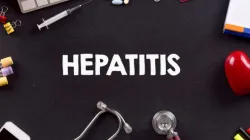Hepatitis Awareness Month 2024: Understanding the five types of Hepatitis and prevention
To observe Hepatitis Awareness Month 2024, we have discussed about the types of hepatitis and some prevention tips. For early diagnosis and treatment, we should know about the types of liver conditions.

Hepatitis Awareness Month 2024 is an annual observance held in May to raise awareness about viral hepatitis and its impact on individuals, communities, and the healthcare system. Throughout the month, various events and activities will be organized to educate the public about the different types of viral hepatitis, their modes of transmission, and the importance of early detection and treatment.
What is Hepatitis?
Hepatitis is an inflammation of the liver caused by various infectious viruses and noninfectious agents, leading to a range of health issues, some of which can be fatal. There are five main types of viral hepatitis: A, B, C, D, and E, each with distinct transmission methods, severity, and preventive measures, according to Dr Naveen Polavarapu, Senior Consultant Gastroenterologist, Liver Specialist & Advanced Therapeutic Endoscopist & Endocrinologist, Yashoda Hospitals Hyderabad.
Types of Hepatitis
Hepatitis A (HAV): Typically spread through ingestion of contaminated food or water, hepatitis A is common in areas with poor sanitation. It usually causes acute liver disease but does not lead to chronic infection. Vaccination is the most effective prevention method .
Hepatitis B (HBV): Transmitted through contact with infectious body fluids, including from mother to child during birth, through sexual contact, or via needles. It can cause both acute and chronic liver disease, potentially leading to cirrhosis or liver cancer. A safe and effective vaccine is available, which is usually given at birth.
Hepatitis C (HCV): Mainly spread through blood-to-blood contact, such as via shared needles. There is no vaccine for hepatitis C, but antiviral treatments can cure the infection in most cases. Preventive measures include avoiding shared needles and ensuring safe blood transfusions.
Hepatitis D (HDV): Only occurs in individuals who are already infected with hepatitis B, as it requires HBV to replicate. It is associated with more severe liver disease. Vaccination against HBV can prevent HDV infection.
Hepatitis E (HEV): Similar to HAV, it is spread through fecal-oral transmission, often via contaminated water. It is generally acute and self-limiting. While there is a vaccine, it is not widely available. Preventive measures include ensuring safe drinking water and proper sanitation
Prevention
Global strategies emphasize reducing new infections and deaths through vaccination, education, and improved access to diagnostics and treatment.
- Vaccination: Effective vaccines are available for hepatitis A and B, which can also protect against hepatitis D. Hepatitis E vaccines are available in some regions.
- Safe Practices: Avoiding the use of shared needles, ensuring safe blood transfusions, and practising safe sex can prevent hepatitis B and C.
- Sanitation: Access to clean water and proper sanitation are crucial for preventing hepatitis A and E.
Remember, by raising awareness and promoting action, Hepatitis Awareness Month 2024 aims to bring us closer to the goal of eliminating viral hepatitis as a public health threat by 2030.
ALSO READ: Heatwave and Stomach Issues: Include these foods in your summer diet to get relief